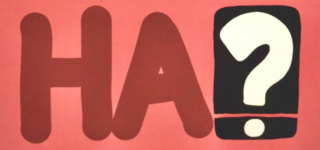Not Worth The Laugh
Generational humor bonds teens from all over the United States together in a sense of understanding.
Will I lose my identity if I untangle myself from Gen Z’s humor?
Feasting on internet memes takes a chunk out of almost every teen life. According to Pew Research Center, 95% of 13-17 year olds spend time on Youtube, 67% of the time on TikTok and 62% of the time on Instagram as of 2022. These Generation Z teens scroll on these sites in a world where internet guidelines and restrictions are still being shaped. What is considered offensive, inappropriate or dangerous is debated.

Generation Z’s humor is in question.
Generation Z is known for having unique humor consisting of sarcastic irony and internet jokes. Memes are at the center of internet humor. Trendy and relatable images and captions are shared daily when they appeal to teens in topics such as school stress and awkward situations. Everyday experiences can be turned into memes and shared with millions of other American teens using social media.
Because anyone can create a meme and current guidelines on social media are transforming everyday, culturally offensive material circulates the internet daily.
Months ago while resting at home I scrolled through Instagram. Memes passed by and I took the time to read one with 100,000 and more views. While I gave a half-hearted chuckle, I could feel my eyebrows squinch. It was a question and picture. It was asking what you would do with a million dollars: Save the Jews or buy a mansion. The photo was an image of a man struggling between two buttons and wiping sweat from his forehead. The photo is known as the “Daily Struggle” and was something I have seen thousands of times. The image of the joke was grounded in my generational humor but the incorporation of the Holocaust was unexpected. Ever since birth my family worked to educate our history but it now sat in the context of the joke.
As a teen I understand the image. It appears frequently and has made me laugh before but now a conflicted fire is starting. I can’t fully appreciate it when my family’s history is being joked about by someone who I don’t know to be Jewish. However, calling it out seems to alienate myself from the accepted humor of our generation.
Educational conversations uplift individuals’ intellectual understanding of others. Any teen can change the mindsets of others cultivating generational humor. Minorities shouldn’t be between a rock and a hard place about Gen Z’s sense of humor. Discussing history in an open school or educational environment is key to preventing this guilt tripping issue.
Educating each other is easier than uploading content to the internet.

